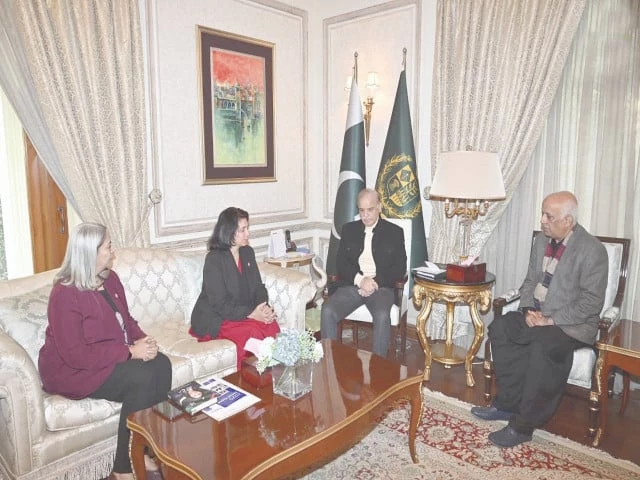PK: There’s a significant rise in the use of buyers agents for off-market residential and commercial deals. There’s also growing interest in alternative assets, such as crypto. Also, more mums and dads are wanting…
Category: 1. Pakistan
-
Highlights of tent pegging competition in Pakistan-Xinhua
Riders compete during a tent pegging competition in Islamabad, Pakistan, Jan. 11, 2026. (Xinhua/Ahmad Kamal) ISLAMABAD, Jan. 12 (Xinhua) — The competitors delivered a spectacular tent pegging competition for the audience with their masterful…
Continue Reading
-

Mass wedding ceremony held in Karachi, Pakistan-Xinhua
Guests take selfies during a mass wedding ceremony in Karachi, Pakistan, Jan. 11, 2026. (Str/Xinhua)

A bride and a groom take a selfie during a mass wedding ceremony in Karachi, Pakistan, Jan. 11, 2026. (Str/Xinhua)

A couple poses for a photo…
Continue Reading
-

Mass wedding ceremony held in Karachi, Pakistan-Xinhua
Guests take selfies during a mass wedding ceremony in Karachi, Pakistan, Jan. 11, 2026. (Str/Xinhua)

A bride and a groom take a selfie during a mass wedding ceremony in Karachi, Pakistan, Jan. 11, 2026. (Str/Xinhua)

A couple poses for a photo…
Continue Reading
-

Mass wedding ceremony held in Karachi, Pakistan-Xinhua
Guests take selfies during a mass wedding ceremony in Karachi, Pakistan, Jan. 11, 2026. (Str/Xinhua)

A bride and a groom take a selfie during a mass wedding ceremony in Karachi, Pakistan, Jan. 11, 2026. (Str/Xinhua)

A couple poses for a photo…
Continue Reading
-

Rewiring Pakistan’s growth model
Governments traditionally have a narrow window – typically the first two years of their term – to implement bold and transformative reforms. photo: file
…Continue Reading
-

PM pledges support for youth, IT training
Parents of late Arfa Karim call on Prime Minister Shehbaz Sharif in Lahore. Photo: SABAH
LAHORE:
…Continue Reading
-
Five killed in Khyber, Peshawar road accidents – Dawn
- Five killed in Khyber, Peshawar road accidents Dawn
- Groom among four killed in Jamrud traffic accident Dunya News
- Five friends killed, groom survives in car accident near Babe e Khyber Associated Press of Pakistan
- Five killed in road accident in…
Continue Reading
-
‘Social barriers prevent female medical students from entering profession’ – Dawn
- ‘Social barriers prevent female medical students from entering profession’ Dawn
- Dr. Khalid Maqbool Siddiqui highlights youth as Pakistan’s strength at International Medical Education Conference Dental Tribune Pakistan
- Political, academic…
Continue Reading
-
76 Hindu couples tie the knot at combined marriages ceremony – Dawn
- 76 Hindu couples tie the knot at combined marriages ceremony Dawn
- Mass wedding ceremony held in Karachi, Pakistan Xinhua
- Brides and grooms enter a marriage hall during the 19th Combined Marriages Program, organized by the Pakistan Hindu Council…
Continue Reading